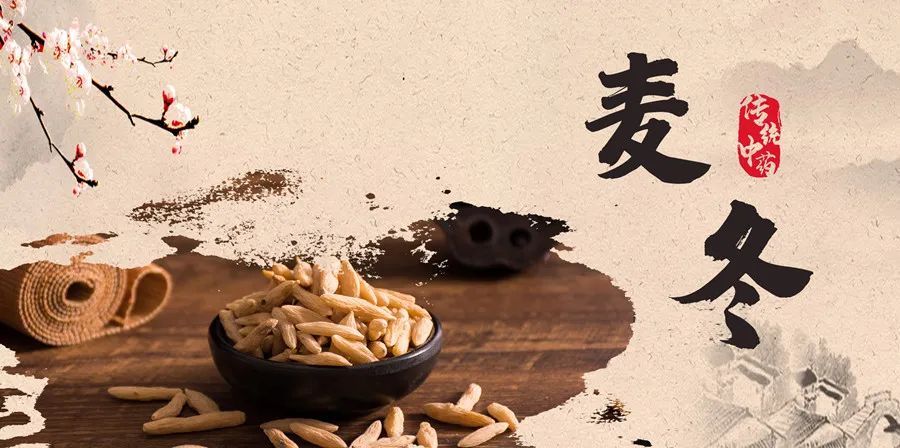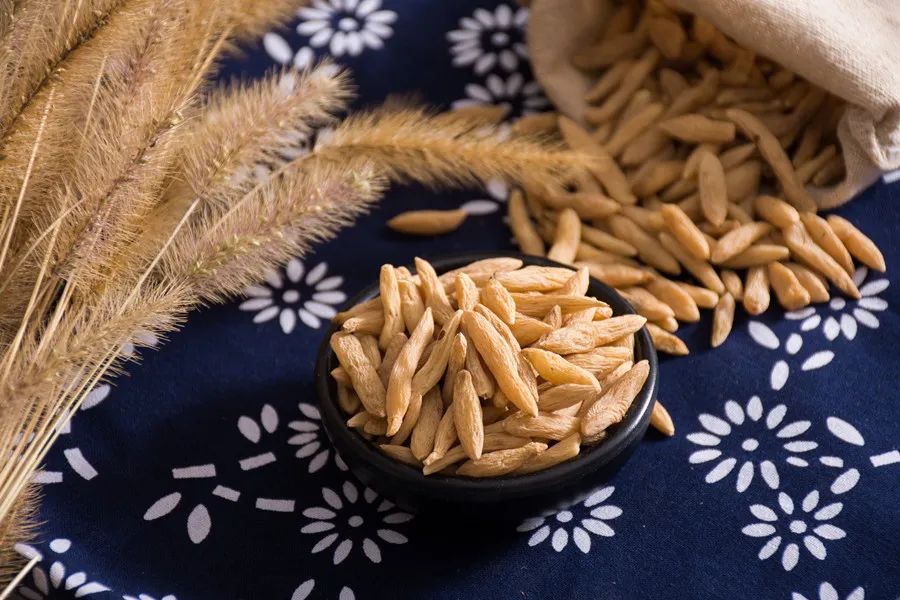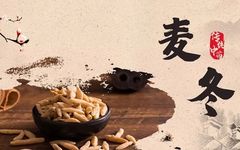Mai Dong (Ophiopogon japonicus)

Mai Dong is the dried tuber of the perennial herb Ophiopogon japonicus, belonging to the Liliaceae family. It is slightly cold in nature, sweet and slightly bitter in taste, and is associated with the Lung, Stomach, and Heart meridians. It has the effects of nourishing Yin, moistening the lungs, benefiting the stomach and generating fluids, and clearing the heart to relieve irritability.
Nourishing the Yin of the Five Organs
This herb is sweet and cold in nature, not only effective in nourishing Yin but also has a slight cooling and resolving effect. Therefore, it is often used for conditions of insufficient Yin fluids in the five organs. Although it enters the Lung, Stomach, and Heart meridians, it can actually nourish the Yin of all five organs, with a particular emphasis on the Lung, Stomach, and Heart.
Lung Yin Deficiency Syndrome This herb nourishes Yin and moistens the lungs, and can also clear heat, making it especially suitable for conditions of dryness injuring Lung Yin and Yin deficiency with Lung heat. For symptoms such as dry mouth and throat, dry cough without phlegm, and dry tongue with little fluid due to dryness, it is often used in combination with Sha Shen (Adenophorae Radix), Yu Zhu (Polygonatum), and Tian Hua Fen (Trichosanthes), as in the Sha Shen Mai Dong Decoction from “Wen Bing Tiao Bian”. If the condition is due to warm dryness injuring the lungs, with more severe dryness and heat, symptoms such as fever, cough, and dry throat, it can be combined with Sang Ye (Morus), Shi Gao (Gypsum), Pi Pa Ye (Eriobotryae Folium), and Ejiao (Colla Corii Asini), as in the Qing Zao Jiu Fei Decoction from “Yi Men Fa Lu”. These two formulas are also among my commonly used clinical prescriptions, with very reliable results. For Yin deficiency with Lung heat, this herb is also very suitable. The “Zhen Zhu Nang” mentions its treatment of “hidden fire in the lungs”, which refers to this condition. It is commonly used to treat pulmonary tuberculosis, pulmonary atrophy, lung abscess, and diphtheria associated with Yin deficiency and Lung heat. For example, the Er Dong Gao from “Zhang Shi Yi Tong” uses this herb in combination with Tian Dong (Asparagus) to treat Yin deficiency cough, which can even lead to coughing up blood. It can also be combined with Sheng Di (Rehmannia), Bai He (Lilium), Bei Mu (Fritillaria), and Zhi Mu (Anemarrhena) to enhance efficacy, as in the Er Dong Er Mu Gao from the same text.
Stomach Yin Deficiency Syndrome According to “Ben Cao Zheng Yi”, “Mai Dong has a very sweet taste and rich in mucilage, thus it specializes in nourishing Stomach Yin and generating fluids. It is a sweet medicine for nourishment.” This herb is sweet, slightly bitter, and slightly cold, excelling in nourishing Yin, benefiting the Stomach, and clearing heat, making it an excellent choice for treating symptoms of Stomach Yin deficiency. For symptoms such as dry tongue, dry mouth, and dry throat caused by warm disease and dryness injuring Yin, it is often combined with Sha Shen, Yu Zhu, and Sheng Di, as in the Yang Wei Decoction and Yu Zhu Mai Dong Decoction from “Wen Bing Tiao Bian”. It can also be combined with the juices of reed root, pear, and lotus root, as in the Five Juices Drink from the same text. For symptoms of thirst due to Stomach Yin deficiency, Mai Dong is good at nourishing Yin and generating fluids to relieve thirst, hence “Ben Cao Zheng Yi” states it is a necessary medicine for “nourishing Yin and relieving thirst”. It is commonly used for internal heat injuring Yin and consuming fluids, with symptoms such as dry mouth, excessive drinking, and excessive eating. For example, the Mai Dong Decoction from “Wei Sheng Bao Jian” is specifically designed for thirst, treating those who drink excessively day and night, similar to modern diabetes with excessive urination, using Mai Dong in combination with Huang Lian (Coptis) and Dong Gua Gan (Benincasae Semen). It can also be used with Wu Mei (Mume) to treat thirst and dry throat that cannot be tolerated, as in the Mai Dong Decoction from “Sheng Ji Zong Lu”. The aforementioned Five Juices Drink and Yang Wei Decoction can also be referenced for treating thirst. For diabetes, Mai Dong is often used in combination with Sheng Di, Gui Jian Yu (Dianthus), Shan Yao (Dioscorea), Huang Qi (Astragalus), and Tian Hua Fen. Additionally, for symptoms of thirst and excessive drinking caused by summer heat, Mai Dong is also commonly used, as in the Mai Dong Decoction from “Za Bing Yuan Liu Xi Zhu”, treating heat stroke and thirst by combining it with Shi Gao, Zhi Mu, and Ren Shen, yielding good results. Modern research has found that this herb has a good hypoglycemic effect, which may be its modern mechanism for treating diabetes.
Stomach Yin deficiency, with fire rising, often leads to vomiting and irritability. Mai Dong nourishes Yin and clears heat, being slightly bitter and able to descend and stop vomiting, thus it is suitable for this condition. The Mai Men Dong Decoction from “Jin Gui Yao Lue” heavily utilizes Mai Dong, combining it with Ban Xia (Pinellia), Gan Cao (Licorice), and Jing Mi (Oryza) to treat Stomach Yin deficiency with symptoms of Qi counterflow, vomiting, thirst, and dry throat. It can also be combined with Sheng Di Huang juice, ginger, and Chen Pi (Citri Reticulatae Pericarpium) to treat deficiency heat, vomiting, and inability to eat, as in the Di Huang Yin Zi from “Wai Tai Mi Yao”. For stomach pain caused by disharmony between the Liver and Stomach due to Yin deficiency, with symptoms of fullness and distension in the stomach and lack of appetite, Mr. Liu Du Zhou often uses the Ye’s Yang Wei Decoction, adding Bai Mei Hua (Prunus) and Sheng Mai Ya (Hordeum) and Shi Hu (Dendrobium), named Yi Wei He Gan Decoction, which has remarkable effects, using Mai Dong to nourish Stomach Yin.
Fluid Deficiency and Dry Intestines Syndrome Stomach Yin deficiency and dryness heat injuring fluids can lead to dry intestines and fluid deficiency causing constipation. Mai Dong nourishes Yin, clears heat, moistens the intestines, and promotes bowel movements. For example, the Zeng Ye Decoction from “Wen Bing Tiao Bian” uses this herb in combination with Xuan Shen (Scrophularia) and Sheng Di to treat constipation due to Yin deficiency. The Mai Dong Ma Ren Decoction from the same text uses this herb in combination with Ma Zi Ren (Cannabis), Bai Shao (Paeonia), and He Shou Wu (Polygonum multiflorum) to treat symptoms of malaria injuring Stomach Yin and constipation. If there is heat accumulation, Da Huang (Rhubarb) and Mang Xiao (Mirabilite) can be added to create a formula for purging heat and moistening the intestines, named Zeng Ye Cheng Qi Decoction.
Liver and Kidney Yin Deficiency Syndrome Although Mai Dong does not enter the Liver and Kidney meridians, the Yin of the five organs are interconnected, and as an important Yin-nourishing herb, it has remarkable effects on Liver and Kidney Yin deficiency. For example, the well-known formula Yi Guan Jian includes Mai Dong, and the Mai Wei Di Huang Wan is also a famous formula for treating Liver and Kidney Yin deficiency, widely used in clinical practice.
Qi and Yin Deficiency Syndrome Mai Dong is sweet, cold, and moistening, nourishing Yin and moistening the lungs, while also benefiting the Qi of the Heart and lungs. Ancients have said it “strengthens Yin and benefits essence”, “stabilizes Lung Qi”, and “nourishes Heart Qi”, often used to treat injuries to both Heart and Lung Qi and Yin, with symptoms such as fatigue, thirst, excessive sweating, and weak pulse. It is often combined with Ren Shen (Ginseng) and Wu Wei Zi (Schisandra), forming the famous Sheng Mai San. Based on my clinical experience, this formula is very effective for treating heart function insufficiency, providing a strengthening effect. However, when treating this syndrome, the dosage of Mai Dong should be large, not small, ideally over 20 grams. Modern pharmacological studies have found that the water decoction of Mai Dong can improve the hypoxia tolerance of experimental animals, increase coronary blood flow, and has a significant protective effect on myocardial ischemia, and can antagonize arrhythmias, which may be its modern mechanism for treating Heart Qi deficiency.
Calming the Shen
“Ming Yi Bie Lu” states that Mai Dong “protects the spirit”, “Ri Hua Zi Ben Cao” mentions it “calms the spirit and stabilizes the soul”, and “Ben Cao Hui Yan” states that “Mai Men Dong is a medicine that clears the heart and moistens the lungs, primarily for insufficient Heart Qi, palpitations, forgetfulness, and mental confusion.” Therefore, Mai Dong has the effects of nourishing the heart, calming the spirit, and clearing the heart to relieve irritability, and can be used for various causes of heart disturbances, especially effective for treating insomnia due to deficiency. If palpitations, insomnia, and forgetfulness are caused by insufficient Yin blood, it can be used in combination with Sheng Di, Dang Gui (Angelica), Xuan Shen, and Bai Zi Ren (Platycladus), as in Tian Wang Bu Xin Dan. This formula is commonly used in clinical practice and can treat various causes of arrhythmia, especially functional arrhythmias with satisfactory results. For those with both Qi and blood deficiency, the famous Zhi Gan Cao Decoction from “Shang Han Lun” is most notable, where Mai Dong is combined with Zhi Gan Cao, Sheng Di, and Ejiao to treat palpitations and irregular pulse due to febrile diseases and miscellaneous diseases. This formula is also commonly used in my clinical practice. In cases of exogenous febrile diseases where heat evil disturbs the heart, leading to irritability and insomnia, Mai Dong can be used, as in the Qing Ying Decoction and Qing Gong Decoction from “Wen Bing Tiao Bian”, combining Mai Dong with Xi Jiao (Rhinoceros Horn), Dan Pi (Moutan), Sheng Di, and Yin Hua (Lonicera) for efficacy.

Stopping Various Hemorrhages
Mai Dong’s ability to stop bleeding is not commonly recorded in herbal texts, but “Yi Xue Qi Yuan” mentions it “treats blood wandering abnormally”. Unlike San Qi (Notoginseng), Xian He Cao (Agrimonia), and Xue Yu Tan (Caragana), which have direct hemostatic effects, it is used to treat bleeding caused by Yin deficiency with heat, where blood does not flow normally. This can be concluded from the various formulas recorded throughout history that include Mai Dong for stopping bleeding, such as the Mai Dong Decoction for treating vomiting blood and nosebleeds in “Tai Ping Sheng Hui Fang”; the Mai Dong Drink from “Ji Sheng Fang”; and in “Huo Ren Xin Jing”, for cases of vomiting blood and nosebleeds that do not respond to other formulas, using the juice of Mai Dong mixed with honey; and in “Bao Ming Ji”, for nosebleeds that do not stop, using it with Sheng Di Huang water. The Mai Dong and Sheng Di Drink from “Yi Zong Jin Jian”, using equal parts of Mai Dong and Sheng Di, boiled in water, is particularly effective for treating blood heat in the upper jiao, with symptoms of fresh blood flowing from the eyes and a weak pulse. There are also modern clinical reports, such as using 60 grams of Mai Dong, combined with 30 grams each of Sheng Di and Xuan Shen, to treat a young woman with intermittent nosebleeds lasting a year, accompanied by bitter mouth, dry stools, and dry nose, who preferred cold drinks, and after taking just a few doses of the formula, she recovered. This indicates that Mai Dong is quite effective for bleeding due to Yin deficiency with heat.
Treating Throat Disorders
Mai Dong is used to treat throat disorders, as recorded in the “Shang Han Za Bing Lun” during the Han Dynasty, stating “great counterflow of Qi, throat discomfort, stopping counterflow and descending Qi, Mai Men Dong Decoction is the main treatment.” This formula heavily utilizes Mai Dong, indicating its primary role in the formula. Additionally, “Anhui Medicinal Materials” states that this herb primarily treats “throat swelling and pain”, which is also based on clinical experience. The reason is that the throat is the gateway of the Lung and Stomach, and Mai Dong nourishes Yin, clears heat, and supplements the Yin of the Lung and Stomach while also clearing heat, making it especially suitable for throat pain caused by Yin deficiency and wind-heat invasion, thus serving as the main herb. In my clinical practice for treating throat pain due to Yin deficiency, I often use the Xuan Mai Gan Jie Decoction, which combines Mai Dong with Xuan Shen, Jie Geng (Platycodon), and Gan Cao, and if there is hoarseness or loss of voice, I often add Chan Tui (Cicada Slough) and Mu Hu Die (Butterfly Pea); if there is heat accumulation, I can add Jin Yin Hua (Lonicera) and Lian Qiao (Forsythia) to enhance efficacy, which generally yields good results.
Treating Insufficient Lactation in Women
In addition to the aforementioned uses, “Yao Xing Lun” states that Mai Dong “is effective for great water retention and swelling of limbs”. In clinical practice, this herb is used less for diuresis, but the Mai Dong San for treating insufficient lactation from “Qian Jin Fang” is still used in clinical practice. There are reports of treating women with insufficient lactation using 12 grams each of Mai Dong, Qu Mai (Dianthus), and Wang Bu Liu Xing (Vaccaria), and 10 grams each of Shan Jiao (Manis) and Gan Cao, taken once daily for 3-5 doses to achieve efficacy.
It is important to note that both Mai Dong and Tian Dong (Asparagus) belong to sweet and cold herbs that nourish fluids and generate fluids, and they are often used together, known as the Er Dong Decoction. The difference between the two is that Tian Dong is more cold and excels at nourishing the Yin of the Lung and Kidney, while Mai Dong also enters the Heart and Stomach meridians, treating irritability and restlessness, which Tian Dong cannot achieve.
Mai Dong is slightly cold in nature, and except for cases of Spleen and Stomach deficiency with cold, the general dosage is on the higher side, with my common dosage being 20-30 grams, especially when treating Heart Qi deficiency, where it must be over 30 grams to be effective; expecting to achieve results with around 10 grams is unrealistic. This herb is sweet, moistening, and slightly cold, so it should be used cautiously in cases of wind-cold colds, phlegm-damp coughs, and Spleen and Stomach deficiency with diarrhea. Clinical reports have noted allergic reactions after taking Mai Dong, often related to individual constitution, presenting as nausea, vomiting, palpitations, irritability, widespread rashes, abdominal pain with a needle-like sensation, itching, and even delirium and fixed gaze. However, I have not encountered such cases in my clinical practice.
Source: Guangdong Traditional Chinese Medicine

After reading, please like, may misfortune retreat and good luck continue~ Come and give a thumbs up↓↓↓

